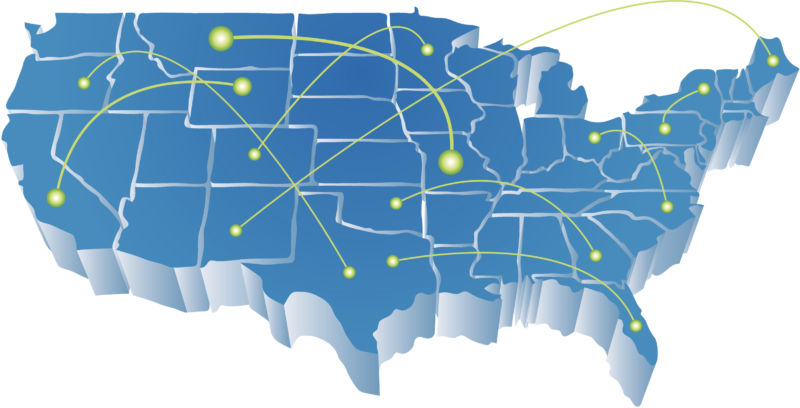
Democratic senators yesterday asked Ajit Pai to abandon a proposal that the senators say would take subsidized broadband plans away from "millions of Americans."
The Federal Communications Commission chairman's plan for the Lifeline subsidy program would force most users of the program to find new providers. But such users could have trouble finding replacement plans or similar prices because Pai's proposal would prevent all telecom resellers from offering Lifeline-subsidized service.
"Your proposal impacts over 70 percent of current Lifeline-recipient households by eliminating their wireless providers from the program, leaving less affordable and fewer Lifeline options, while making it more difficult for the companies trying to serve Lifeline customers," Senate Democrats wrote in the letter to Pai yesterday. "Instead of cutting the program, we should ensure Lifeline reaches more Americans in need of access to communication services."
The letter was written by Sens. Kamala Harris (D-Calif.), Jeff Merkley (D-Ore.), Bernie Sanders (I-Vt.), Kirsten Gillibrand (D-NY), Edward Markey (D-Mass.), Ron Wyden (D-Ore.), Richard Blumenthal (D-Conn.), Elizabeth Warren (D-Mass.), Dick Durbin (D-Ill.), and Cory Booker (D-NJ).
Pai offered no evidence, Democrats say
Lifeline lets poor people use a $9.25 monthly household subsidy to buy Internet and/or phone service. More than 70 percent of wireless phone users who rely on Lifeline subsidies buy their plans from resellers, i.e. companies that purchase capacity from network operators and then resell it directly to consumers.
Pai's plan would prevent all resellers from participating in Lifeline, limiting the subsidies to "facilities-based broadband" providers, those that operate their own networks. The proposal has drawn widespread condemnation from both liberals and conservatives, as we previously reported.
Pai claimed that kicking resellers out of the program would spur facilities-based carriers to invest in their broadband networks. But his proposal offered no evidence for this claim, Democrats wrote. They asked him for a response with specific data to back up the assertion:
The December 1, 2017, Notice of Proposed Rulemaking (NPRM) provides no evidence, analysis, or data to support its assumption that the FCC's proposed changes to Lifeline will spur facilities-based broadband deployment and additional affordable services for low-income families. Provide any specific data, analysis, academic studies, economic reports, etc. that you relied on to support this assumption. Explain why the NPRM included no evidence or data to support this assumption.
Proposed spending cap
Lifeline has more than 12 million subscribers, but only about one-third of eligible households receive the subsidies. Pai's proposal would also impose an annual cap on Lifeline spending, which could prevent many of the remaining households from getting the broadband or phone subsidies they are eligible for. Lifeline currently has a budget of $2.25 billion, indexed to inflation, but no hard cap on spending.
In addition to the standard $9.25 monthly subsidy for low-income households, tribal residents are eligible for another $25 a month. Pai's FCC has already banned residents of tribal lands from obtaining the $25 enhanced subsidy from resellers and eliminated the $25 extra subsidy for tribal residents who live in urban rather than rural areas.
Lifeline is essential for low-income Americans "who rely on subsidized internet access to find jobs, schedule doctor's appointments, complete their school assignments, interface with the government, and remain connected in a digital economy," Democrats wrote in the letter to Pai.
Lifeline subsidy recipients include a disproportionate number of families with children, veterans, and people of color, they also wrote.
The senators ended their letter to Pai by asking the following questions:
- What is the FCC's plan for the millions of Americans that would lose service due to your actions to cut the Lifeline program?
- How many Americans in total, broken down by state, would lose their current service provider under your proposal? How many Americans would be left without any provider offering Lifeline service?
- How will you ensure the integrity of the comment record is intact, and that it will be taken into your decision-making process?
- How does your proposal help to increase the already terrible connectivity situation in Puerto Rico after its devastation by recent hurricanes?
- How does your proposal ensure connectivity/affect availability of Lifeline for the following groups (please provide current Lifeline participation statistics for each, where available):
- Tribal members
- Rural Americans
- Low-income Americans
- Veterans
- Elderly populations
Pai could still change or drop his plans for banning resellers and capping overall Lifeline spending. The Notice of Proposed Rulemaking asked the public for comment, and the deadline for submitting feedback passed last week. With the comment period being over, Pai could finalize the proposal at any time and set up a commission vote.
We asked the chairman's office for a response to the senators' letter and an update on his Lifeline plans. We'll update this story if we get an answer.
reader comments
179